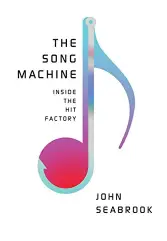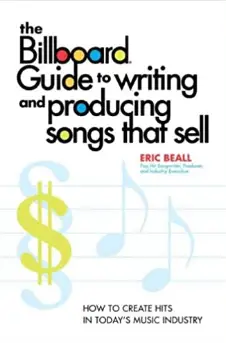How exactly do you go about writing a hit song?
Sadly, there is no secret formula to writing hit songs, because if there was, then everyone would be writing hit songs all the time.
That said, we can look at hit songs and compare them to find clues.
What do hit songs have in common, and what advice do the writers of those songs give?
That's what I cover in this article.
For this article, we'll look at what advice Max Martin gives for writing hit songs.
Free Fan Funnel Formula Guide
Grab my free guide on how to actually start turning followers into fans, and fans into paying SUPERFANS!
Stop chasing vanity metrics and actually build a business around your music that generates consistent, predictable, income.
This post may contain affiliate links. If you purchase through one of my affiliate links, I'll earn a small commission at no extra cost to you.
Who Is Max Martin?

Max Martin is arguably one of the top 5 greatest hit songwriters of all time, as he has written or co-written 25 Billboard Hot 100 NUMBER ONE songs, most of which he also produced or co-produced.
Only Paul McCartney and John Lennon have more number one songs.
Max Martin Swedish, and in fact, many of the biggest hit songwriters today originate from Sweden, having learned from the late Denniz PoP.
A fascinating book you can read (or listen to on Audible) about Max Martin, Denniz PoP, and all the biggest Swedish hit makers, is "The Song Machine".
I highly recommend it, and you can grab a copy here (affiliate link).
The Song Machine
Over the last two decades, a new type of song has emerged. Today's hits bristle with "hooks", musical burrs designed to snag your ear every seven seconds.
Traveling from New York to Los Angeles, Stockholm to Korea, John Seabrook visits specialized teams composing songs in digital labs with novel techniques, and he traces the growth of these contagious hits from their origins in early '90s Sweden to their ubiquity on today's charts. Featuring the stories of artists like Katy Perry, Britney Spears, and Rihanna as well as expert songsmiths like Max Martin, Ester Dean, and Dr. Luke, The Song Machine will change the way you listen to music.
So to understand how to write a hit song, I watched a bunch of interviews involving Max Martin, and have summarized his advice into this article.
Should You Even Try To Write A Hit Song?
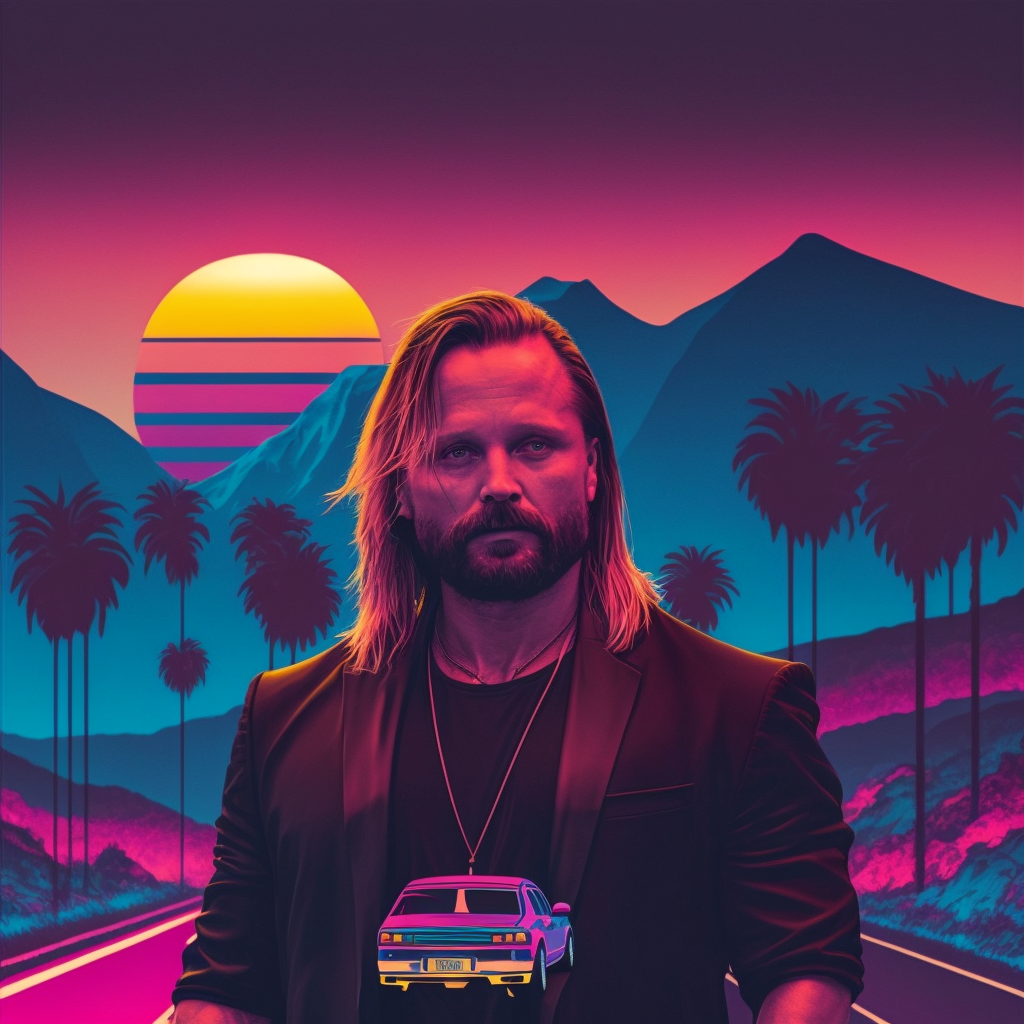
In the old days, you had to write a hit song to get noticed and picked up by a label...which was the only way you could make a living from your music.
Today, this just isn't the case.
You don't need to write hits.
You just need to write songs that a small portion of the population absolutely falls in love with, enough that they're willing to spend $100 a year on your music, merch, fan club, etc.
If you could get 1,000 fans to spend $100 a year on your music business, then that's $100,000 a year, and you're making a pretty good living from your music.
Let me repeat...
You only need 1,000 true fans.
So you're much better off niching down and writing songs that appeal to small, dedicated fanbases, rather than trying to compete with pop stars.
By niching down, you become a big fish in a small pond, and you stand out.
But if you try to write hits, you'll most likely get lost in the noise.
If you really want to make a living from your music, then check out my article here on how to do it.
What we can learn from hit songs
Wait, so if we shouldn't be focusing on writing hit songs, then why write a guide about hit-writing?
Because even if you create music that is far from the realm of popular music, you can still learn somethings about songwriting by studying the hits, especially if you're creating any kind of mainstream music like Country, Rock, Hip-Hop, Electronic, etc.
So with that said, don't worry about sticking to the rules in this guide...unless you are trying to create a hit, but more so pay attention to WHY all hits have these 9 elements.
The Hit Songwriting Structure
Before diving into the 9 elements, let's pause briefly to look at the hit songwriting structure.
Just about every hit song follows this song structure in some way, shape, or form:
- Intro
- Verse 1
- Pre-Chorus
- Chorus
- (Hook)
- Verse 2
- Pre-Chorus
- Chorus
- (Hook)
- Bridge
- Chorus
As you can see, the song is almost all choruses of some form.
You have a couple of verses to reset the energy, but then the energy picks back up again, building from pre-chorus to chorus, and potentially even an instrumental hook (common in EDM).
So if you want to write a hit song, or just a song that many people will like, consider following this structure, or something closely related.
1. Up-tempo

If you look at any of the top hits, you'll notice that they're all up-tempo songs. Not going to find too many ballads these days in the Billboard top 100.
Therefore, you should probably keep your song above 90bpm.
That said, actual bpm is less important than the feel of a song. You can have a song that is a lower bpm that still feels upbeat.
2. Keep It Under 3 And A Half Minutes
According to Billboard.com, the average length for a Hot 100 top 10 song is "a brisk 3:07, a drop of 30 seconds from 2018's average of 3:37."
Additionally, songs UNDER 3 minutes account for 39% of all Hot 100 top 10s in 2019.
What does this tell you? Obviously, you need to keep your song short and sweet because people don't have very long attention spans.
A shorter song also leaves the listener a little less satisfied, prompting them to listen to the song again and again.
You also want to get to the chorus fast, usually by 40 seconds or less. If you want to "cheat", you can even open your song by starting with a version of the chorus, and make that your intro.
3. Fits In A Core Genre

According to Eric Beall, the former Creative Director for Zomba Music Publishing and current Vice President, Creative at Sony/ATV Music, your song needs to fit within a "core genre".
For example, Rock must rock, and not be a combo of a bunch of genres. This doesn't mean your song can't take influences from other genres. It certainly can, and probably even should...
But it still has to fit with in a genre. It can't be a song orphan without a genre to call home.
You can read more about how to write songs that sell in Eric Beall's book, which I read as research for this article:
4. Identifiable
In other words, "catchy". People should be able to instantly recognize the song, and probably even know the name of the song before they've finished listening to it.
This means lots of repetition, preferably of the title of the song in the chorus.
Expert songwriters say that the listener should be able to guess the title of the song after just one listen.
This is a fine line (as with many of these tips, which is where artistry comes in) as too repetitive, and the song becomes stale, or even annoying.
But not enough repetition, and the song doesn't stick in the head of your listeners.
5. Relevant
Additionally, hits are generally relevant to the times we're living in, or at the very least, relatable to a wide swath of society.
This is why songs about love and break-ups are so often hits. A lot of people can relate to these topics, and they're pretty much always relevant.
So you could try writing a song about specific trends going on in society right now (maybe use Google Trends to help)
But you also risk your song becoming irrelevant in the near future.
So think more about what topics you can write songs about that are both relevant, but also evergreen, and will be relevant for years to come.
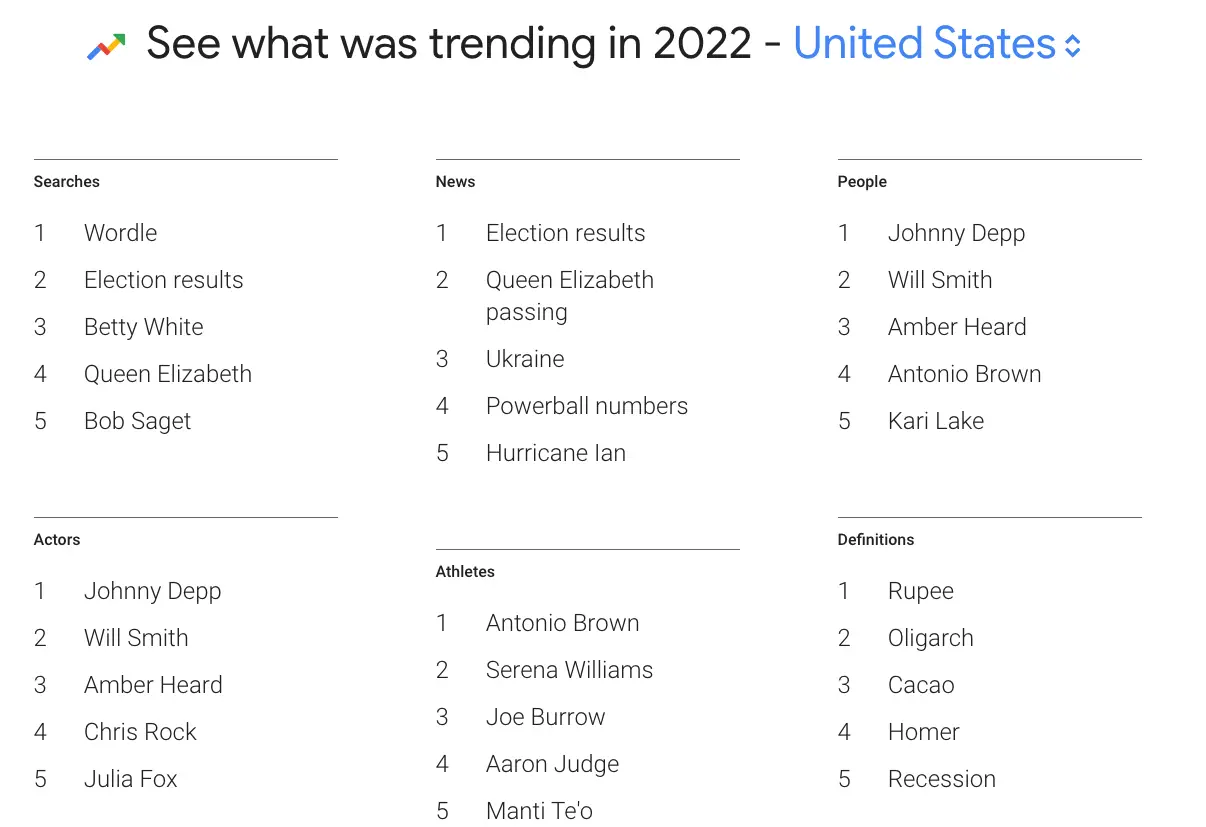
6. Simple...But Unique
In the words of Max Martin, the most prolific hit-maker of the past two decades, a hit needs to be simple, but interesting and unique.
This sounds a little bit like an oxymoron, but Martin elaborates:
If the first verse is super-busy, a lot of words, maybe the next part should be the complete opposite, with long notes...It’s a good resource when you’re stuck. But the thing that happens within the method has to be free-flowing and creative in order to be great. That’s the magic part.
- Max Martin
So when writing a hit, try to use less parts and sounds, and try and make the sections and sounds you do have more interesting. This is because if your song is too complex, it can actually overwhelm the listener.
As Martin says when talking about the song "Shake It Off" that he wrote for Taylor Swift:
(He hums the verse melody).
After that segment, you need a few longer notes in order to take it all in, otherwise it’s simply too much information.
- Max Martin
Another great way to avoid overwhelming your listener is to only add one new element or sound at a time to your track. Let it build over time.
7. Grows In Energy
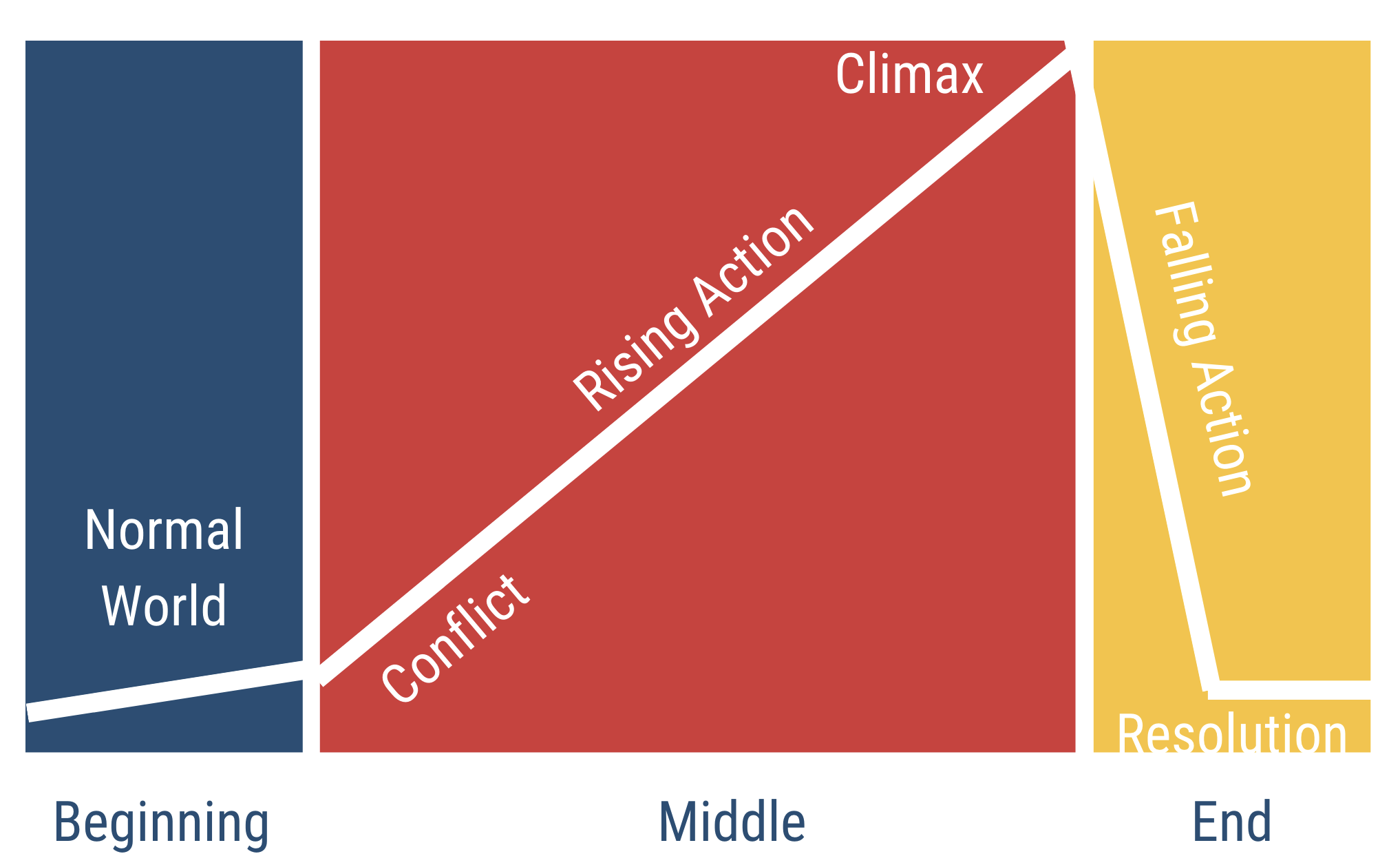
Although you want to keep things simple, you also don't want your song to be boring. You can also keep your song unique and interesting by making sure that it grows in energy as it progresses.
Your song may have some dips after choruses, but the overall trend should be up. In this way, a song should follow the same structure of a novel.
To add interest, every section (chorus for example) should be slightly different than the last. Don't just copy and paste everything. Add some subtle nuance so every section is just a little bit different.
And absolutely try rerecording the vocals for each chorus. Don't copy and paste your vocals from one section to the other.
Merely rerecording your vocals (for the same lyrics) will make each chorus feel and sound a little different.
Free Fan Funnel Formula Guide
Grab my free guide on how to actually start turning followers into fans, and fans into paying SUPERFANS!
Stop chasing vanity metrics and actually build a business around your music that generates consistent, predictable, income.
8. Killer (And Catchy) Melody
The melody is the most important part of a song. If you're melody isn't interesting and catchy, it's not going to be a hit, and most listeners probably won't finish it.
To achieve this, you may want to write your song by first starting with the melody. Once you know you have a great melody, then you can build a song around that.
As Max Martin says:
I can only speak for myself when I say that writing the melody first gives me more freedom than doing it the other way around...It’s very important to have a great melody...If you have one, build your song around that. Don’t make it too complicated.
- Max Martin
One thing that can help your melodies is to be sure and use an equal number of syllables for each repetition of the melody. If you used a certain number of syllables the first time, keep it the same the second time.
There's no one "perfect" sequence of music notes that will guarantee a hit melody, as success in music depends on a variety of factors such as the song's lyrics, production, and overall artistry. However, here are a few tips for creating a catchy, memorable melody:
- Use simple, repetitive melodies that are easy to sing along to.
- Use a combination of stepwise motion (moving up or down by scale degrees) and wider leaps.
- Vary the melody by using different rhythms and phrasing.
- Avoid using melodies that are too long or too complex.
- Experiment with different melodies and see what works best for your song.
It's also important to consider the overall structure of your song and how the melody fits within that structure. In general, a good song structure might include a verse, chorus, bridge, and outro, each with its own distinct melody.
You can check out my video below for more help with writing melodies. It says it's specifically for synthwave music, but the concepts apply to all music.
9. Simple (But Memorable) Lyrics
Again, this sounds a bit like a paradox, but it's not. One thing that Max Martin and many of his Swedish hit-making counterparts have said they have benefited from is not having English as their first language.
As a result, their focus is on the sound of the lyrics, and whether they fit the melody, and not so much on making grammatical sense in the English language.
Don't worry about making grammatical sense
Remember, this is art, your lyrics don't have to make sense, in fact, it might be better if they don't.
Some examples of this in popular songs include:
They're just there to get across the feeling the melody and the music is trying to convey, so don't let grammar hold you back.
- "I can't get no satisfaction" - The Rolling Stones, "(I Can't Get No) Satisfaction"
- "Are we human or are we dancer?" - The Killers, "Human"
When looking at other Billboard hit songs, the lyrics can vary greatly in terms of subject matter, style, and tone. However, there are a few common themes and elements that many hit songs share:
- Emotional appeal: Many hit songs tap into universal emotions such as love, heartbreak, joy, or nostalgia, and use relatable lyrics to connect with listeners.
- Memorable phrases: Hit songs often have catchy phrases that are easy to remember and sing along to.
- Storytelling: Many hit songs tell a story or convey a message through their lyrics.
- Vivid imagery: Hit songs often use descriptive language and imagery to paint a picture for the listener.
- Universal themes: Hit songs often address themes that are relatable to a wide audience, such as relationships, personal growth, or social issues.
- Pop culture references: Some hit songs make references to popular movies, TV shows, or other cultural touchstones to connect with listeners.
Below you can find just a small sample of some of the most famous lyrics from hit songs, and you'll notice they're all pretty simple, but also emotionally powerful and/or a little odd so they stick in your mind.
They also usually have universal relevance, and can be used in many different situations.
Don't stop believin' is often played to day during sporting events to remind the home fans to...well, don't stop believin'!
- "I wanna hold your hand" - The Beatles, "I Want to Hold Your Hand"
- "You can't always get what you want" - The Rolling Stones, "You Can't Always Get What You Want"
- "We are the champions" - Queen, "We Are the Champions"
- "I will always love you" - Whitney Houston, "I Will Always Love You"
- "Stairway to Heaven" - Led Zeppelin, "Stairway to Heaven"
- "Sweet Child o' Mine" - Guns N' Roses, "Sweet Child o' Mine"
- "Don't stop believin'" - Journey, "Don't Stop Believin'"
- "Don't worry, be happy" - Bobby McFerrin, "Don't Worry, Be Happy"
- "Let it go" - Frozen, "Let It Go"
Overall, the lyrics of hit songs tend to be well-written, catchy, and emotionally resonant, and they often strike a balance between being relatable and unique.
Conclusion

And that, in a nutshell, is how to write a hit song. Of course, there is no formula, but having these elements in your song can help you get closer to striking gold.
Again, this may not apply if you're making Ambient or Chill or Classical or some other form of music that doesn't follow the hit format, and that's okay. You can still make a great living this way.
In fact, I don't even recommend that you try to write hits and compete with the pop stars and their teams of writers (like Max Martin), producers, and obscene amounts of money.
Like I talk about in my "Fan-Funnel Formula", you just need to find your micro-genre and please the fans in that small section. Be a big fish in a small pond.
Free Fan Funnel Formula Guide
Grab my free guide on how to actually start turning followers into fans, and fans into paying SUPERFANS!
Stop chasing vanity metrics and actually build a business around your music that generates consistent, predictable, income.
That said, take this guide and think about what you can learn from the elements of hit songs. After all, they're hits for a reason. They're hits because they tap into human nature.
There is something comforting about the simple, repeating, relatable nature of this hit song structure. So think about how you might use these elements in your next song.

